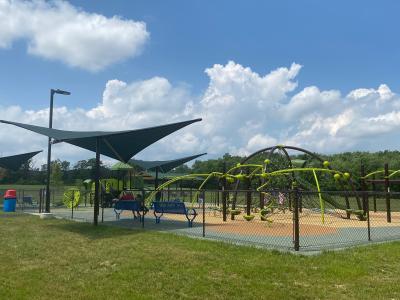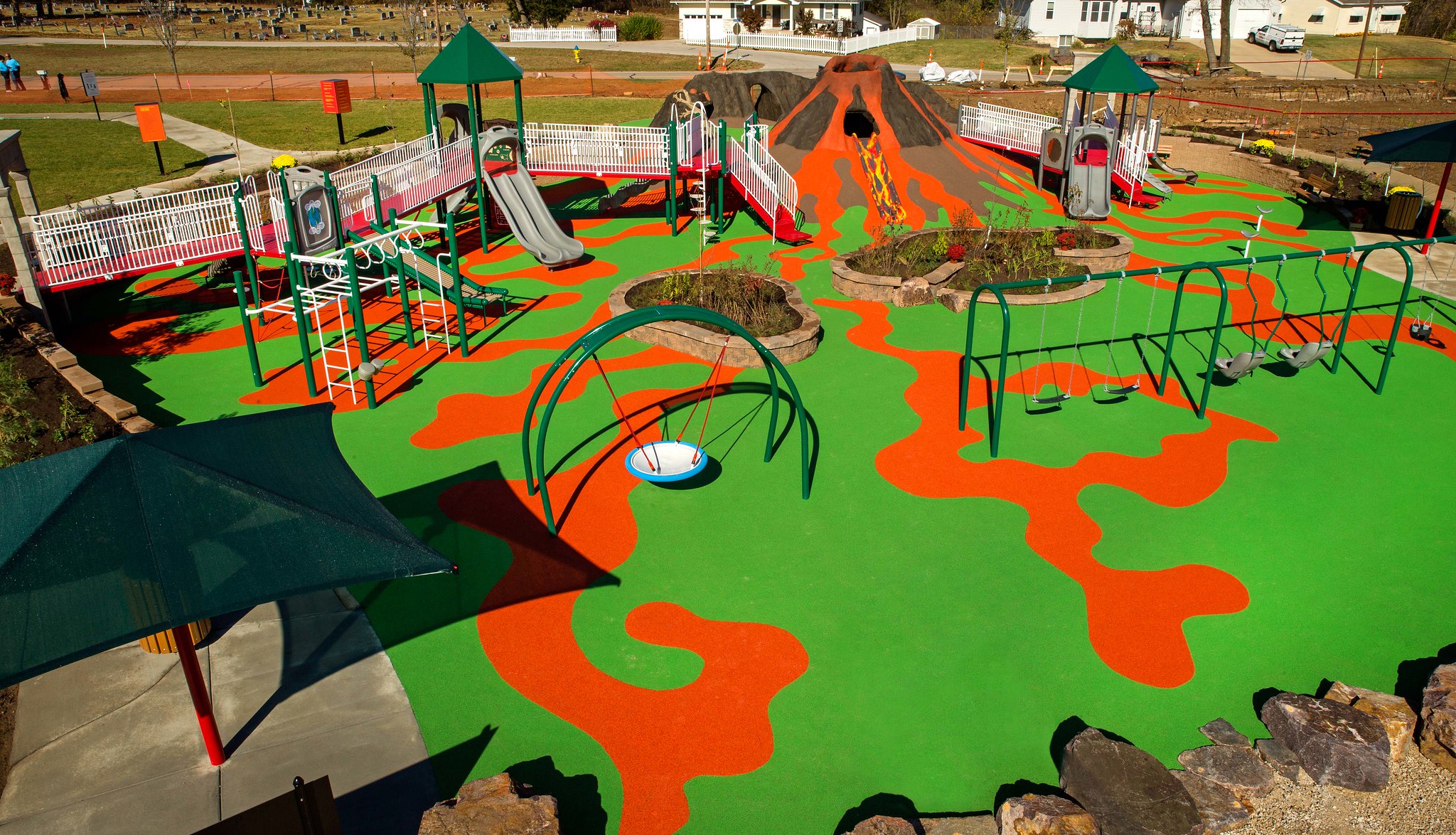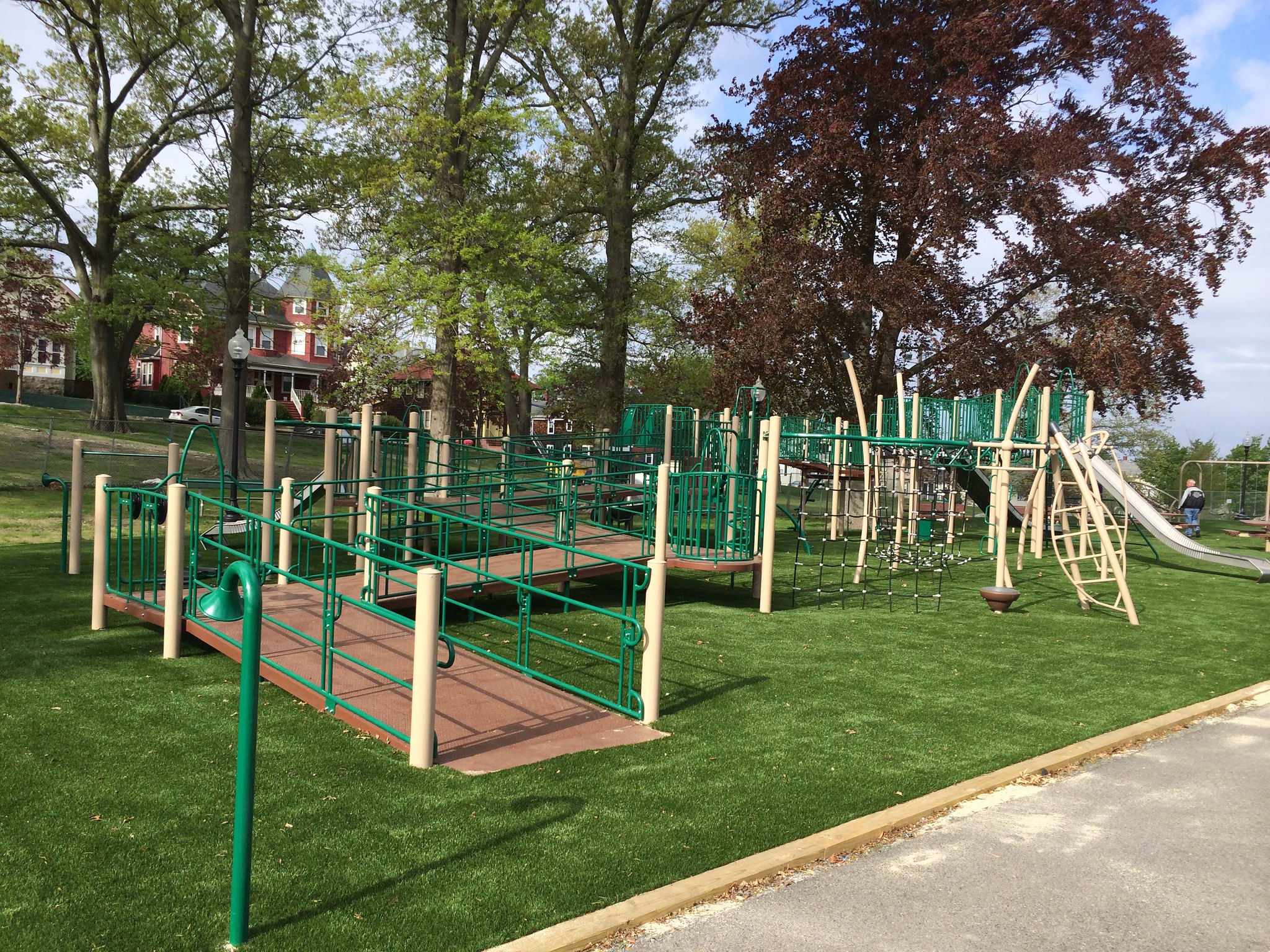

Inclusive parks are transforming communities by providing accessible and welcoming spaces for all individuals, regardless of their abilities. These parks play a crucial role in fostering community engagement, enhancing physical and mental health, and promoting social cohesion.
In states like New Jersey and Pennsylvania, several exemplary inclusive parks highlight the significant benefits they bring to the community.
Enhancing Physical and Mental Health for Everyone
Inclusive parks are designed to cater to the physical activity needs of ALL individuals, including those with disabilities. These parks often feature accessible playground equipment, sensory gardens, and smooth, wide pathways suitable for wheelchairs and strollers.
Making parks accessible for everyone is key for promoting better physical health and mental well-being in our communities.
A great example of an inclusive park in New Jersey is Jake’s Place in Cherry Hill, NJ. Jake’s Place offers universally accessible playgrounds that encourage children of all ages and abilities to play together, fostering both physical activity and social interaction.

Accessible Parks and Public Spaces Promotes Social Cohesion
One of the primary goals of inclusive parks is to create spaces where everyone feels welcome! By providing facilities that accommodate various needs, these parks help bridge social gaps and encourage interactions between diverse groups.
The Friendship Park in North Wales, Pennsylvania, is an excellent example. This park features inclusive play structures and sensory-friendly areas, promoting interaction among people with and without disabilities, thereby enhancing social cohesion and understanding within the community. This park is also dog-friendly, making it a great place for social activities among more than just people!

Economic Benefits of Inclusive Parks
Inclusive parks can also have a positive impact on local economies. By attracting visitors from neighboring areas, or even states, these parks stimulate local businesses and create job opportunities.
The presence of well-maintained, inclusive parks increases property values, making neighborhoods more attractive to potential residents nearby. Parks and open spaces can significantly boost the economic health of nearby communities, particularly when they are accessible to all.
A Further Look into Accessible Parks in New Jersey & Pennsylvania
Photo: Build Jake’s Place (https://www.buildjakesplace.org/ourinspiration)
Jake’s Place, Cherry Hill, New Jersey:
Jake’s Place is a shining example of an inclusive park in New Jersey. This accessible park was built in memory of Jacob Myles Cummings-Nasto, a boy who loved to play despite his physical challenges. The park features wide ramps, specialized swings, and sensory play areas.
The park’s design ensures that children with mobility issues, sensory impairments, and other disabilities can enjoy the playground alongside their peers. Jake’s Place has become a beloved community hub, drawing families from across the state and beyond.

Friendship Park, North Wales, Pennsylvania:
Friendship Park in North Wales, Pennsylvania, embodies the spirit of inclusivity. It offers play structures designed for children of all abilities, including those with physical, sensory, and cognitive challenges.
The park also includes quiet zones for children who may become overwhelmed by sensory input, ensuring that everyone has a space where they feel comfortable and safe. The community-driven design and ongoing engagement efforts make Friendship Park a model for inclusive recreational spaces.
The Role of Civil Engineering in Creating Inclusive Parks
Civil engineers play a pivotal role in designing and constructing inclusive parks. Our expertise ensures that these spaces are not only accessible but also sustainable and safe. Engineers work closely with landscape architects, urban planners, and community stakeholders to create parks that meet the diverse needs of the population.
In New Jersey and Pennsylvania, civil engineering firms have been instrumental in bringing projects like Jake’s Place and Friendship Park to life, demonstrating a commitment to accessibility and community well-being.
Inclusivity is Vital in Our Communities

Inclusive parks offer immense benefits to communities by promoting physical health, social cohesion, and economic growth. There are many real-life examples that showcase positive impact of accessible recreational spaces.
As civil engineers, it is essential to continue advocating for and designing inclusive parks that serve the needs of all community members, ensuring that everyone has the opportunity to enjoy the great outdoors!
By focusing on accessibility and inclusivity, we can build stronger, healthier, and more connected communities.
For more information about the various services we provide for parks, please visit our Planning and Site Design page.
